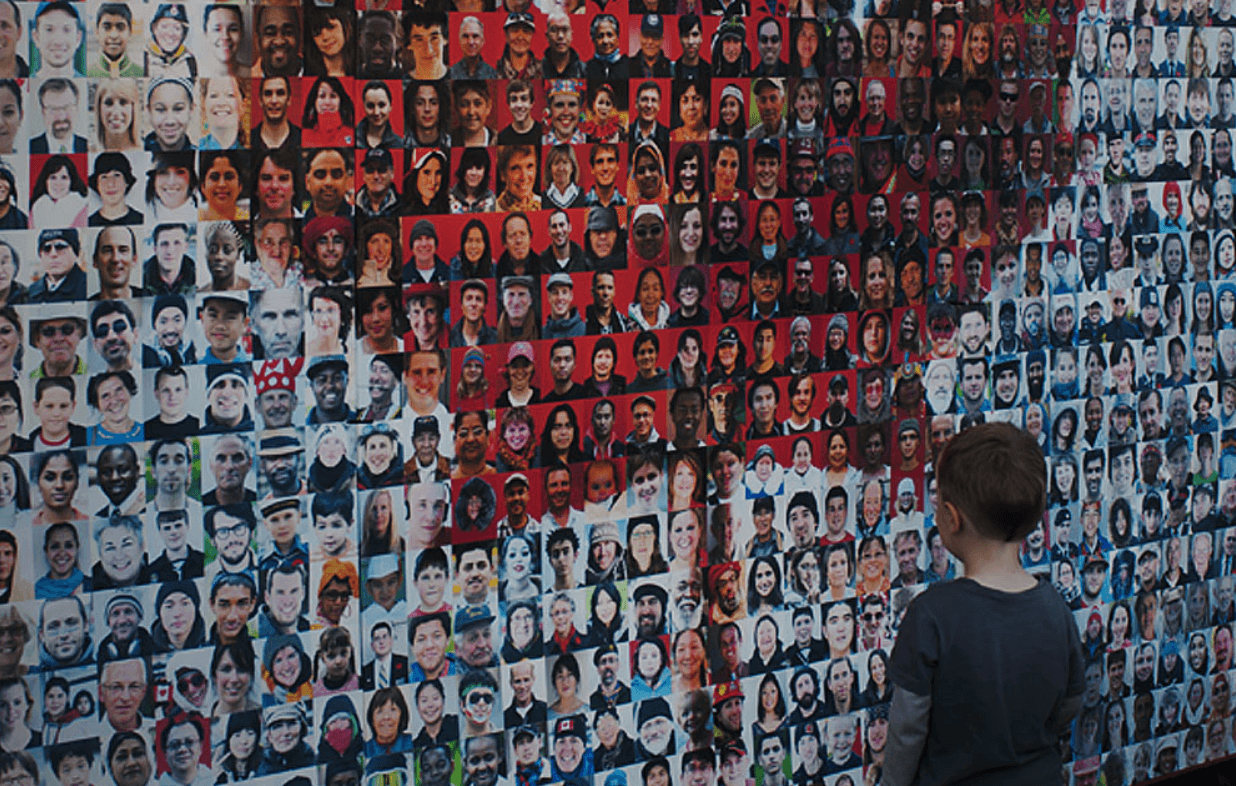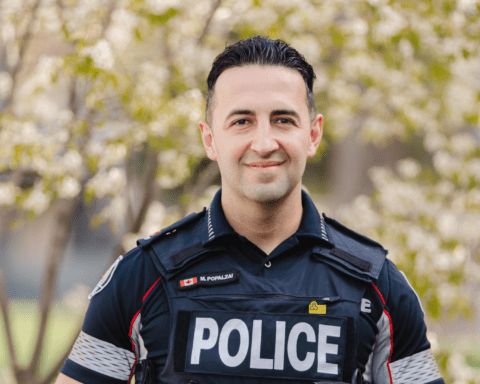Multiculturalism is the nemesis of standardization. It’s vibrant, dynamic, celebrates differences and creates richer experiences for everyone. Multiculturalism is a beautiful thing, and it’s as Canadian as maple syrup.
And it’s been growing. Over the past two decades, immigration levels have been on an upward trend. Data compiled by Statista shows that immigration to Canada has grown by more than 60 per cent between 2000 and 2019.
That’s not, in itself, surprising. Canada has international appeal. It’s a peaceful place that offers many immigrants a good quality of life.
For the fifth year in a row, people from around the world named Canada as the top country for quality of life according to the 2020 Best Countries rankings conducted by U.S. News & World Report.
The bigger question at play is: how will a generation of immigrants change the face of the so-called ‘Canadian identity’?
Canada’s identity is changing
According to Statistics Canada, nearly a quarter of Canada’s current population were either born in another country, or have at least one parent who is foreign-born.
That number includes yours truly.
My dad’s parents came to Canada from Jamaica in 1970. My mother’s side arrived in Canada from Trinidad in 1972. So while I grew up as a Canadian, many of the traditions that shaped who I’ve become were imported from other other countries.
In many ways, I’m the classic poster-boy of what many academics and theorists have dubbed ‘hyphenated Canadians’.
Hyphenated Canadians are people who were born in another country but have Canadian citizenships. They can also be people whose ethnic background is not Canadian even though they’re Canadian citizens. Some people opt to fully adopt the identity of the country they’re living in and only identify as such but this is inaccurate.
So growing up, when I met people, I would tell them I’m half-Trinidadian, half-Jamaican. It didn’t mean that I was any less Canadian or any less proud to live here. It’s just the traditions I took part in as a kid were imported. Living in Canada undoubtedly shaped my experiences and value system, but so did the culture my grandparents brought from the islands.
History has championed a conservative Canadian identity
It shouldn’t be surprising, in light of all the recent discussion about Canada’s racist history, that the idea of being a hyphenated Canadian hasn’t always been championed. In fact, one of the idea’s most staunch opponents was former prime minister John Diefenbaker.
Diefenbaker, for lack of a better description, viewed a hyphenated Canadian identity as a barrier, not a bridge. Hyphenation, to him, was a manifestation of prejudice, and said that the concept was a way of delegitimizing a person’s place in the national community. He believed that hyphenating one’s identity suggested that they were less than a full citizen.
Perhaps that vision held greater currency in the late 1950s, but, in hindsight, it’s a theory that hasn’t aged well with Canada’s changing ethnic composition.
Growing up in Scarborough — a Toronto suburb famous for its food and diversity — I’ve always implicitly understood that there are multiple layers to one’s identity. Almost everyone I knew had parents or grandparents who were born somewhere else, or they were the product of a mixed-race relationship. There was nothing nonsensical about it.
Diefenbaker’s perspective on hyphenated identities focuses too heavily on ‘otherness’. His views suggest that ethnicity exists outside of Canadianness and that ethnic traditions and Canadian culture are incompatible. It’s not a matter of ethnic traditions only existing outside of Canadianness, but simply that they originate somewhere else. Simply put, someone’s hyphen represents their family’s journey and adds nuanced insight into their lives.
To regard ethnic and hyphenated Canadians as ‘only Canadian’ ignores their unique culture and history. It erases the struggles and traumas that brought them to Canada and falsely purports that we’re all treated equally. Positions that oppose hyphenated identities are usually in favour of assimilation, which has a dangerous past in this country, and can mean the silencing of cultures.
The use of a hyphen should not be a tool for divisiveness, but rather, as a way to bring people together. It can be a way to take pride in one’s heritage – or an invitation to learn more about it. Canada is the meeting place of many diasporas, and by grouping hyphenated Canadians, people can connect with their histories and with others who share their culture. This can help keep traditions alive and help other cultures learn about them.
‘Canada is a mosaic, with many distinct tiles’
Don Curry is a member of the New Canadian Media Collective, he often writes about immigration and employment. I recently spoke to him about the difference between ethnicity and immigration status and their role in someone’s identity. Curry is a fifth-generation Canadian living North Bay, he believes that immigration is vital to Canada.
“Canada is a nation of immigrants and everyone, except Indigenous people, came from somewhere else. The only difference is when you came,” he said.
Canada’s diversity is a product of our immigration practices and is part of why Canada is so wonderful. Curry says that Canadians should embrace our differences and take comfort in our shared values.
“Canadian culture has been difficult to define, largely because we are a mosaic, rather than the U.S. claim to be a melting pot,” Curry explained.
Curry put it perfectly; we’re a mosaic, with many distinct tiles.
My understanding of what it means to be Canadian is not conformity, it’s about learning from and coexisting on this land with people who are different. Some of my fondest childhood memories included playing soccer at Eritrea Fest, having longanisa for dinner at friend’s houses and learning Newfoundland slang. That to me, was a typical Canadian childhood and I wouldn’t trade it for the world.
Marcus is a poet, editor and freelance journalist based in Toronto. He currently works with New Canadian Media as an Editor and as a Freelance Writer for ByBlacks.com, The Edge: A Leader's Magazine and The Soapbox Press.





Quite interesting! On the other end of the hyphenated spectrum are immigrants who fully immerse themselves in the Canadian culture to the extent that they don’t even wish to be identified as ‘immigrants.’! According to some of them, they wish the hyphen didn’t exist even. I was recently trying to interview a few second generation ‘immigrants’ who informed me politely that they are Canadians and not immigrants! To them, my response was exactly what Don Curry said – that we are all immigrants, except the indigenous people!
Thank you for commenting Minu. I can understand not wanting to be identified as an immigrant, because being an immigrant means you’re different and somehow don’t belong.
Great article Marcus. Also that term ‘visible minority’ … when I first heard it I asked myself: what in heaven’s name is a visible minority and why should I identify myself as such? I worked internationally and never heard that term until I came to Canada. Also I assimilated quickly when I came here since I am perfectly bilingual … when I travel out of Canada I identify as a Canadian … and NOT a hyphenated one!
Thank you very much Nanyi. I too introduce myself as simply Canadian when travelling abroad.
Stay safe and Happy Canada Day!
A Canadian is a Canadian is a Canadian
I agree. And it will be interesting to see what conversations will be had around Canada Day this year given the hard questions we’ve been forced to confront during the pandemic.
Hyphenating citizens is a surefire way of dividing Canadians. I am completely against the “mosaic” concept as as that only leads to friction, division, and distrust. We are all Canadian. If anyone wants to be identified with their country of origin first, then they likely were never ready to emigrate to Canada in the first place.
Hey Doc, thanks for taking the time to stop by. I have to say, I disagree completely with pretty much everything you’ve said.
Hyphenating Canadians identifies them with their ethnic origins but that doesn’t at all mean that the “division” needs to be anything more than a category. And not an arbitrary category because Canadians do come from all over the world. Seeing Canada as a mosaic only leads to the negative things you mentioned if you choose to let it. There is no reason to distrust someone for identifying with their origin or ethnicity. What would you even have to worry about if someone chose to identify as something other than Canadian? To say that we’re all Canadian erases people’s individual histories. And it’s not as if Canada has always been friendly to these ethnic groups (ie. Jews, Italians, Chinese Head Tax). And who gets to decide what and who is or isn’t Canadian?
And I think that last comment indicates that you don’t know very much about the reasons why people leave their countries and come to Canada. Besides, some people who were born in Canada also identify with their ethnic roots.